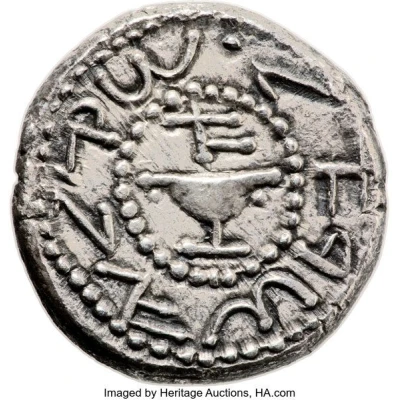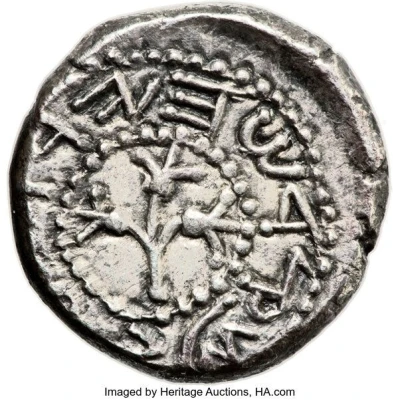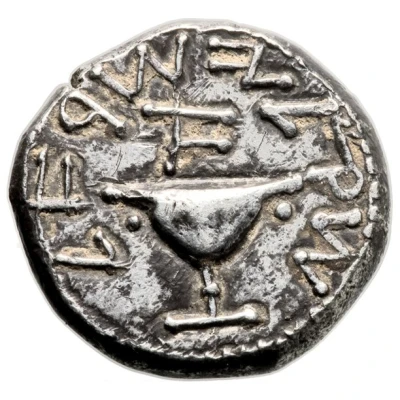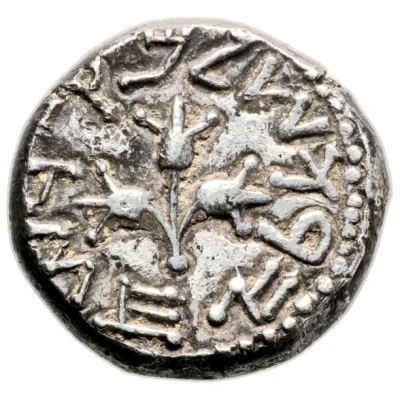


© Heritage Auctions
Sheqel Year 1; Prototype
| Silver | 13.8 g | 24 mm |
| Issuer | Judea |
|---|---|
| Period | First Jewish-Roman War (66-73) |
| Type | Standard circulation coin |
| Years | 66-67 |
| Value | 1 Sheqel |
| Currency | The Great Revolt ‒ Shekel (66-70) |
| Composition | Silver |
| Weight | 13.8 g |
| Diameter | 24 mm |
| Shape | Round (irregular) |
| Technique | Hammered |
| Demonetized | 0073 |
| Updated | 2024-10-10 |
| Numista | N#93076 |
|---|---|
| Rarity index | 100% |
Reverse
Stem with three pomegranates, pearl at base, circle of dots all around pomegranates and also around outer legend
Script: Hebrew
Lettering: ירושלם קדשה
Translation: Jerusalem [the] holy
Comment
One specimen sold for $242,000 in Bromberg I.This is a prototype for the first year sheqel and is, therefore, the first coin type of the Jewish War. Two specimens are known to exist, one in the Israel Museum and the second in a privet collection.
In the late 1970s, an Arab dealer in Jerusalem offered me a group of six sheqels. Three were year two, two were year three, and the sixth was one of these two coins. The price asked for the six coins was $6,000. The dealer was well known for often dealing in forged coins. I rejected the deal, but instead offered $5,000 for the five sheqels, not including the sixth. At the time, this type had not been published. While it looked authentic to me, I was not certain enough to overcome my doubts, and $2,000 for a questionable coin was a lot of money. It was to my chagrin that in 1991 the Bromberg specimen sold at auction for $242,000.
David Hendin Guide to Biblical Coins Fifth Edition
Interesting fact
The Sheqel (Year 1; Prototype) (66-67) from Judea was one of the first coins to feature a portrait of a Jewish leader, specifically King Agrippa II. This was a significant departure from traditional Jewish coinage, which typically featured symbols or abstract designs. The inclusion of a portrait was seen as a way to emphasize the authority and power of the Jewish leadership during a time of great political upheaval.

